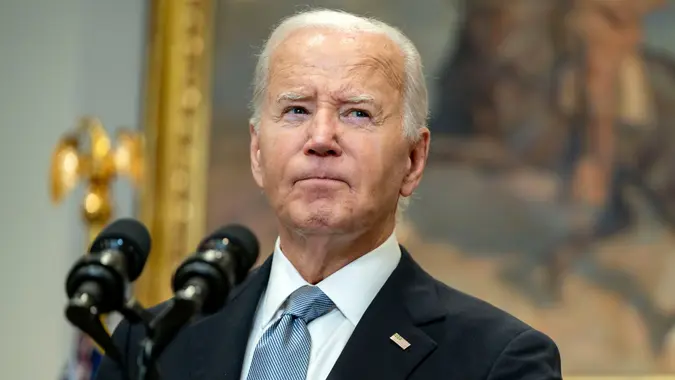GOBankingRates works with many financial advertisers to showcase their products and services to our audiences.
These brands compensate us to advertise their products in ads across our site.
This compensation may impact how and where products appear on this site.

Commitment to Our Readers
GOBankingRates' editorial team is committed to bringing you unbiased reviews and information.
it’s possible for you to read more about oureditorial guidelinesand our products and servicesreview methodology.
In a subsequentpost on X, Biden pledged his support for Harris, 59, as the Democratic nominee.
My very first decision as the party nominee in 2020 was to pick Kamala Harris as my Vice President.
And its been the best decision Ive made.
Bidens decision to leave the race is an unprecedented move in modern political times.
The last sitting president to halt a re-election campaign wasLyndon B. Johnson.
In 1968, he ended his bid eight months before the election amid low approval ratings.
How closely will his replacement adhere to the current Fiscal Year 2025 budget proposal?
He added that the Democratic candidate may favor similar proposals.
There were zero yes votes from elected Democrats in the House or the Senate, he continued.
Burns further explained that the TCJA has several provisions that are permanent and several that are sunset.
Burns added that there are plenty of planning opportunities for investors to take advantage of thecurrent tax laws.
Many economists believe some portion of tariffs are passed onto consumers in the form of higher prices.
A different Democratic candidate may have different trade and tariff policies than President Biden.
It could stir up some uncertainty in the markets and tax policies.
We might not see immediate changes, but its always good to stay alert.
He added, with Harris now running, This could lead to changes in tax policies.
New leadership often brings new priorities, and these can impacttax brackets or deductions.
While this level of government spending is unprecedented, higher taxes, unfortunately, are not.
In the1950s, 1960s, and 1970s, the highest tax brackets sometimes touched 90%.
Will we get back to those levels?
More From GOBankingRates
Share This Article:



